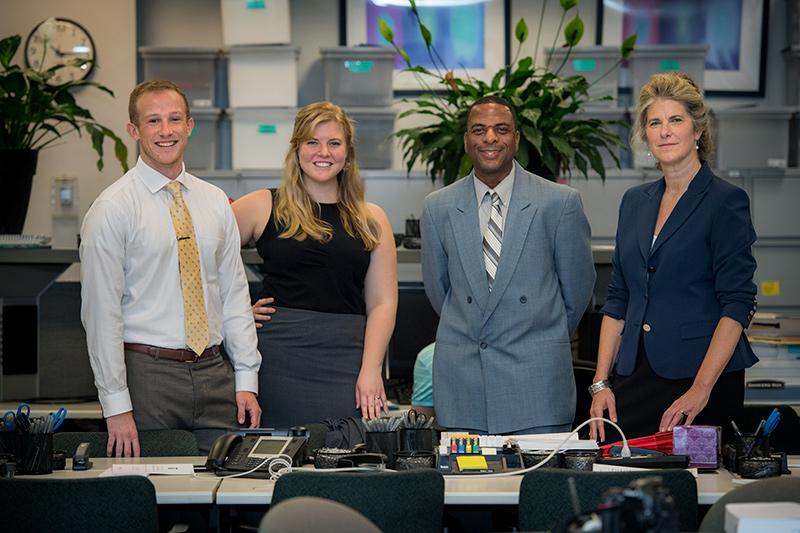Students, alumni of Criminal Justice Clinic help free inmate
It took 11 years and 22 student attorneys from Tulane’s Criminal Justice Clinic to help free Michael Monroe.
Last week, after serving 21 years of a life sentence in Louisiana’s State Penitentiary at Angola, Monroe’s legal saga ended; he was resentenced to eight years with credit for time served. At his hearing were his last two Tulane clinic student-attorneys, and the woman who shepherded the case for more than a decade, Clinic Director and Professor Katherine Mattes.
“I cannot thank them enough; Miss Mattes, the students, Tulane,” said Monroe. “Knowing that I had someone on my side, it gave me hope and a goal to reach.”
Monroe, convicted in 1998 as a habitual offender for breaking into a closed French Quarter restaurant, was sentenced under the state’s tough ‘three strikes’ laws, where judges were hamstrung to give mandatory life sentences even in victimless, non-violent cases.
And that’s why Mattes said she wasn’t giving up on Monroe. “He didn’t deserve to be in prison for life,” she said. “Throughout his ordeal, even when things weren’t looking good, such as after we lost an argument in court, he worked hard and never blamed us. He always kept our spirits up, too.”
Monroe’s case was a striking example of how overwhelmed and underfunded the Orleans Parish Public Defenders’ Office was at the time of Monroe’s conviction. Monroe was never advised that going to trial for a simple burglary could result in a mandatory life sentence, and his own attorney testified to that years later.
That’s when Mattes and Tulane clinic were assigned the case by the trial judge. They filed multiple legal challenges seeking relief, and twice took it to the Louisiana Supreme Court, but legal avenues failed.
By that time, Monroe had become a model prisoner, volunteering in hospice and in Angola’s infirmary, ministering to other inmates and driving for a warden.
In 2016, with legal challenges exhausted, two Tulane students helped draft a bill (Act 469) that would allow inmates like Monroe to seek parole. Sara Norval and Tobias Hasler, both 2016 law graduates, persuaded State Sen. Danny Martiny to sponsor the bill; they went to Baton Rouge to testify and advocate for its passage.
That year Act 469 became law. Monroe would get parole, but it was not the same as being free.
That’s when his final clinic student attorneys, Tanner Beal and Laura Frost, both current third-year students, took on the case. They had to show Monroe was a good candidate for resentencing under new laws, and that he had reformed his life.
“Although we felt confident we would be successful,” Beal said, “we had to make a very strong case so that he would receive a lower sentence (and credit for his 21 years served). It was not guaranteed.”
Last week a judge resentenced Monroe to eight years, with credit for time served. For Mattes, her students, and Monroe, it was the end of one chapter and the beginning of another.
"Working on Mr. Monroe's case as his last student attorneys and our first case in clinic was the greatest way to start the year. He is an incredible man – so full of hope and perseverance – and I am so excited to see justice finally served,” Frost said.
As for Monroe, he recently visited Tulane Law and watched Mattes wipe his name off her dry-erase board where she tracks student cases.
“Finally, thank God,” he said, to much laughter, surrounded by the students and the professor he now considers family.

